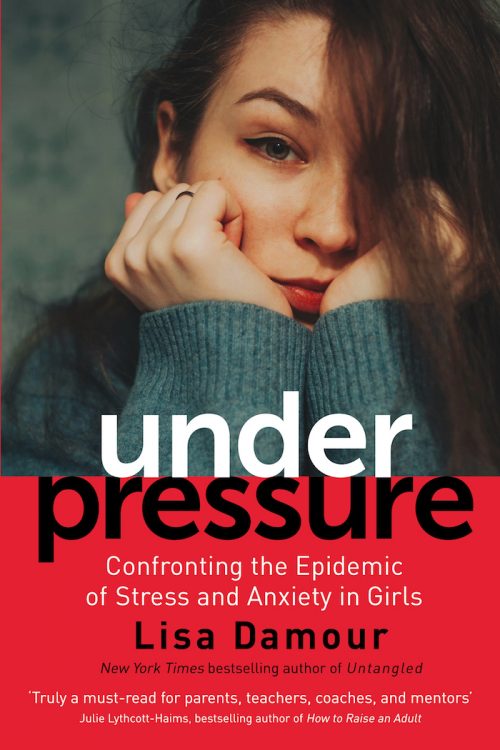
Clinical psychologist Dr Lisa Damour says there is a great deal parents can do to help their daughters navigate life's rough waters. We talk to the New York Times best selling author about her new book.
Leading clinical psychologist Dr Lisa Damour’s new book Under Pressure sets out a different way of thinking about the stress overload our daughters are feeling, and why some stress and anxiety can be healthy.
And the way parents respond is critical – making things better or worse. She writes that there is a great deal that parents can do to protect their daughters from toxic stress.
Dr Damour is a New York Times columnist and author of the best-selling Untangled, about raising teenage girls.
She spoke about her new book in this Q&A with The Parents Website

There’s been the growing realisation that we are seeing much higher levels of stress and anxiety among teens, but you clearly identify a gender imbalance – this ‘emerging epidemic of nervous girls’. What’s going on?
Girls have long been more likely than boys to suffer from symptoms of anxiety – largely because they are (as a result of socialisation) more likely to collapse in on themselves when distressed, while boys are more likely to act out. However, the gap between boys and girls seems to be growing and there are likely several factors at play such as the strain girls feel in their social relationships, the harassment that girls often endure from boys, the fact that girls tend to feel more stressed about school than boys do, and the unique pressures that girls face, such as the heavy emphasis that our culture places on female appearance.
One of the key messages of the book is that both anxiety and stress are normal parts of life. Why do you think we’ve ended up seeing them as pathological?
I’m not entirely sure, but I’ve come to worry about the impact of the wellness industry. I think that there’s a lot of money to be made in selling the idea that people are supposed to feel relaxed and calm all the time. This is, of course, impossible. But if you first sell the idea, then you can sell a solution (spa treatments, CBD oil, etc.) to people who will invariably find that their daily life includes stressful and anxious moments.
You’ve talked about the metaphor of exercise when facing a challenging situation. Can you tell us more about that?
Rather than seeing psychological stress as pathological, we can think of it as being similar to weight-lifting. Everyone knows that in order to build muscle, we need to lift uncomfortably heavy weights. Likewise, in order to build intellectual and emotional strength – we need to work beyond our comfort zones.
Also, everyone knows that weight-lifting must include periods of recovery – because anyone who lifts weights non-stop you definitely get injured. Similarly, stress becomes unhealthy when it’s chronic – when people don’t get breaks from it. We can only enjoy the positive, growth-giving aspects of psychological stress if we have effective system for restoring ourselves.

You emphasise the importance of the way parents and teachers react. You’ve talked about two words – ‘stink’ and ‘handle.’ Can you explain how this works?
When girls are distressed, it can be tempting to try to help by asking questions, or offering suggestions or reassurance. In my experience, these adult reactions often seem to make girls feel worse. Instead, I find that empathy and validation tend to help. When a girl tells me about something she’s struggling with, I’ll often say, ‘Oh, that stinks!’ From there, I might empathize a bit more before letting her know that I think she can handle the difficulty, and asking if there’s anything I can do to help her figure out how to handle it.
There’s an increasing awareness of the dangers of perfectionist thinking among girls. Ivanhoe Girls’ Grammar School, one of our Member Schools, held a ‘Failure Week’ as a way of changing the conversation. How important is this message for girls?
I do think that girls need to know that they should not expect their paths to be straight or smooth. Another way we can share this message is for adults to talk openly with young people about our own professional journeys and how winding and bumpy our paths have usually been. In my experience, girls find this greatly reassuring.
Under Pressure, by Dr Lisa Damour, is published in Allen & Unwin, RRP $29.99.
Like this post? Please share using the buttons on this page.
Subscribe to The Parents Website


